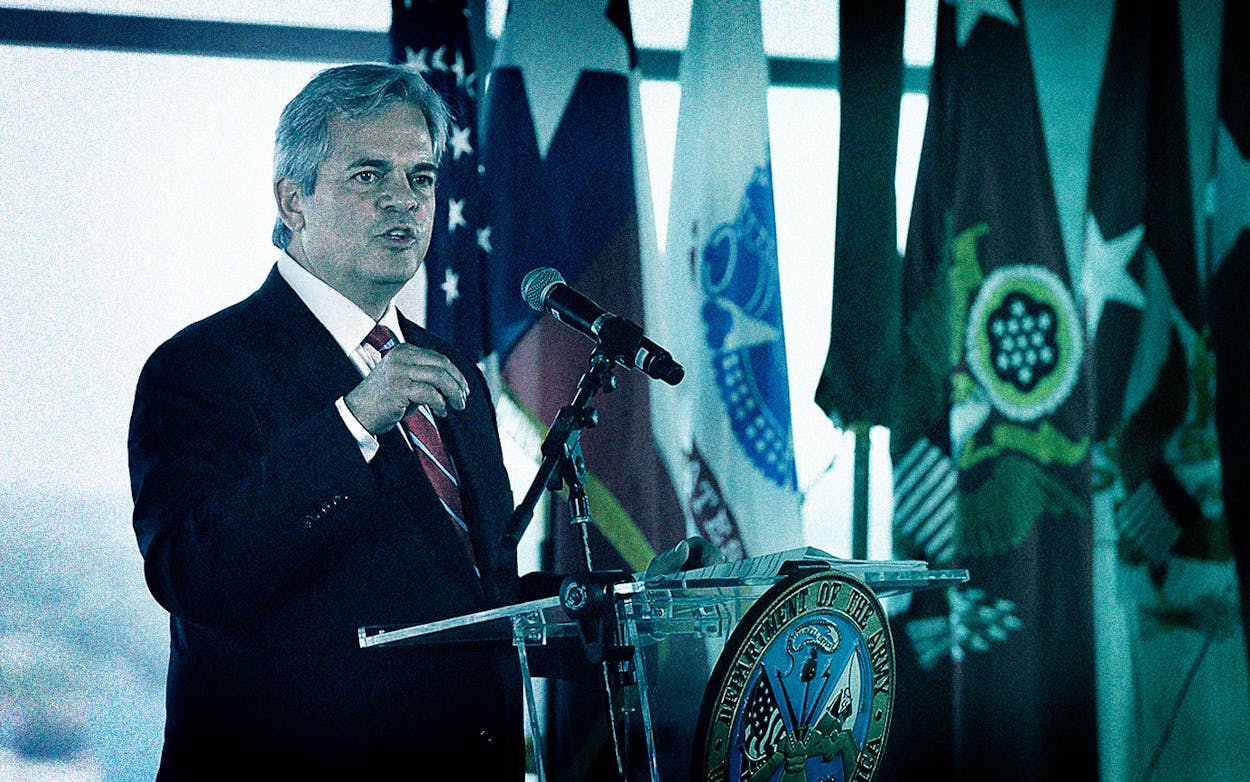Subscribe
Last week, Governor Greg Abbott made good on his promise to clear people experiencing homelessness from beneath state highway underpasses in Austin. It was the latest salvo in a contentious debate that started in June after Austin’s city council voted to effectively legalize sleeping, camping, and panhandling on sidewalks and in other public spaces. Austin mayor Steve Adler believed removing the restrictions and thereby increasing the visibility of the homeless might pave the way for larger issues related to homelessness to finally be confronted—leading to increased funding for homeless outreach, additional beds in shelters, and expanded affordable housing. The state of those efforts and how Adler believes the governor could really help are the heart of the latest episode of the National Podcast of Texas. Also on the show, Adler weighs in on how well his city is keeping it weird even as it frets over the problems brought on by its rapid growth, particularly transportation needs and a lack of enough affordable housing.
Three takeaways from our conversation:
1. Adler says his primary concern with Abbott’s efforts to dismantle homeless encampments is that it again scatters and hides citizens in need of the city’s resources.
“You just have to keep reminding yourself that in June we did not create any more people experiencing homelessness and that now you just see them. And the impact of seeing them means that we can now keep the areas they’re in cleaner than we could before because when they’re in some remote place—around creeks and rivers—we might not even know where that camp is. And I guarantee you there is no one picking up trash and putting it into dumpsters in those really remote areas. But now we have a much better control over that. We are actually hooking people up with medical attention. We can give somebody a medical test on Monday and then go back on Thursday with results. And when we need to talk to them, we can find them because we know where they are. And we’re doing a better job of hooking people up for referrals, for housing, getting them in line and processed. So when people clean those areas, that’s a good thing. But if we’re cleaning those areas with an intent to so disrupt people’s lives and make it so hard for them that we chase them back to the woods, then we are making it harder to solve homelessness, and we are making our city less safe. And we are making them less safe.”
2. In April, Adler endorsed the presidential bid of Mayor Pete Buttigieg, passing over two 2020 Democratic candidates from Texas—Julián Castro and Beto O’Rourke. Adler met and befriended Buttigieg at the United States Conference of Mayors in 2015. He also has a personal relationship with former New York City mayor Michael Bloomberg, who may enter the 2020 presidential race.
“Mayor Bloomberg did some incredibly creative things in New York City. He’s fearless. He’s data driven. He’s objective, and right now in the world, he’s probably doing as much for cities as any individual is with his Bloomberg Foundation and its support of cities. The city of Austin is a beneficiary of that. But I don’t know that he could ever be the nominee of the Democratic party. I think somebody like Mayor Pete represents the call for the next generation of leadership, and I think that he would garner greater excitement and intensity. But I have a lot of respect for Mayor Bloomberg.”
3. Adler believes the biggest risk with rapid, unrestrained growth is losing sight of what made Austin a place people and businesses from across the country wanted to be.
“This is still a city with a higher risk tolerance. This is still a city where nonconformity is still something that is not only tolerated but encouraged and valued and celebrated. … We can’t lose the diversity, the differences in a city that create the friction that drives innovation and creation. We can’t become a place where only rich people can be. I love San Francisco. It’s a great city, but I remember going to San Francisco in the late seventies, in the early eighties, and there was art being created everywhere we went in that city. And today San Francisco is a city that consumes art. It doesn’t create art in the same way. Austin still creates art. Our existential threat is we stop creating art and become a city that just consumes it.”






